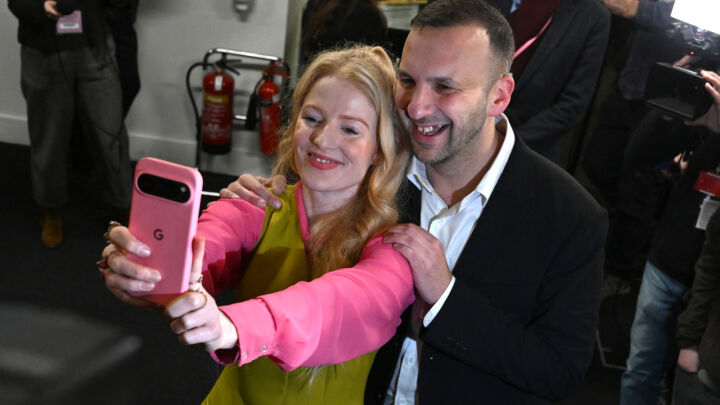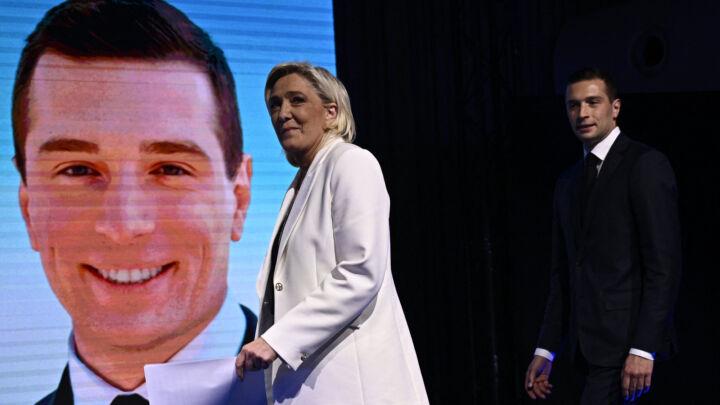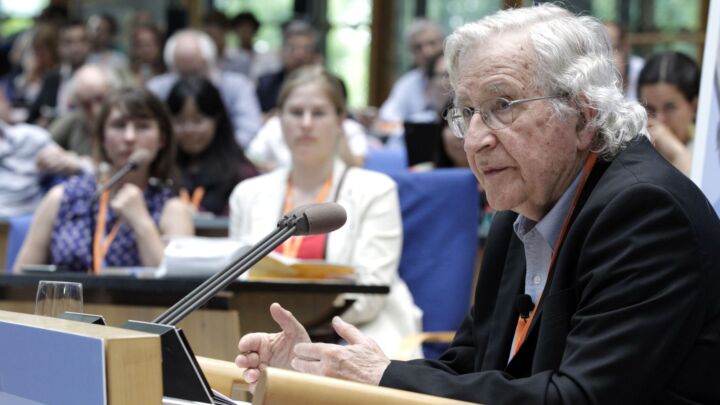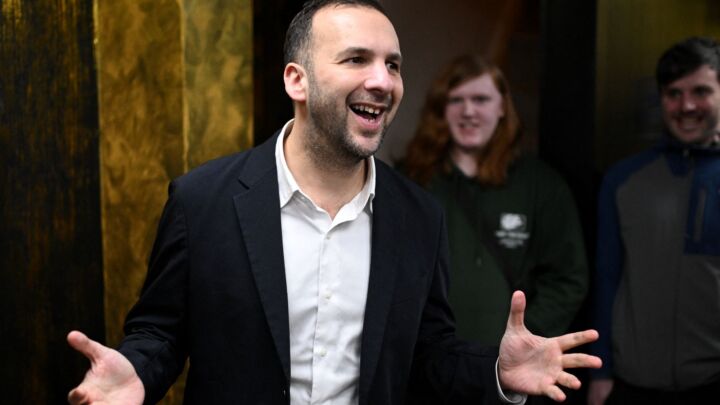Feed the West’s ego
It's Christmas time, and there is a need to be afraid: the sanctimonious Band Aid brigade is back.

Want unlimited, ad-free access? Become a spiked supporter.
If you make it to the end of the new, reconstituted Band Aid single – which brings together the apparent cream of British pop, including poor little rich girl Dido, posh rockers Coldplay, Keane and Travis, boy band Busted, and a bit of street cred in the shape of the screeching Dizzee Rascal – you’ll notice that the singers burst into spontaneous applause.
One music critic muses that, ‘whether knowingly or not’, they plundered this device from ‘the finale of The Beatles’ “Continuing Story of Bungalow Bill”’, which also ends with clapping, suggesting that Band Aid is keen to ‘reference the musical past’ (1). Do what? It’s far simpler than that: they are applauding themselves, which just about sums up the sorry, self-congratulatory affair that is Band Aid.
Twenty years ago, then Boomtown Rat Bob Geldof and Ultravox poseur Midge Ure got Duran Duran, Bananarama, Paul Young, Sting, Status Quo (obligatorily referred to as ‘the Quo’ in all discussions of Band Aid), Paul McCartney, Phil Collins, George Michael, Boy George, Marilyn (a poor transvestite’s Boy George) and others into a recording studio to cut the original version of ‘Do They Know It’s Christmas?’, aimed at raising money for the starving of Ethiopia. It was a huge hit in December 1984, selling over three million copies. It was followed in July 1985 by the transatlantic gig, Live Aid, which took place in Wembley Stadium in London and JFK Stadium in Philadelphia, watched by 1.5billion people and raising a reported £40million for famine relief.
Today Geldof is a latter-day saint and Ure a recovering alcoholic, and Band Aid is back – this time trying to raise money for the homeless and hungry in the war-torn Darfur region of Sudan. The song is everywhere: on 19 November the video for the song was shown simultaneously on all five of Britain’s terrestrial TV channels (as well as on all 12 MTV channels, and Sky One, Sky Sports, Sky Mix, Sky Travel, The Box, Kiss, Magic, Kerrang and Q). As a Band Aid spokesman said: ‘I’ve never known even a royal occasion, like the Queen’s speech, to be shown on all channels like that.’ (2) And UK chancellor of the exchequer Gordon Brown, unlike the nasty Thatcher, who in 1984 proposed collecting Value-Added Tax on the sale of Band Aid singles, reportedly called Geldof and promised to waive VAT this time around. One report says that ‘Band Aid II’ may have an even bigger impact than the first one (3).
(A Pop Anorak’s aside: some commentators have mistakenly referred to this latest outing as ‘Band Aid II’, or more conveniently ‘Band Aid 20’, it being the twentieth anniversary of the original. In fact, this is Band Aid III. A few seem magically to have forgotten that this apparent classic was re-recorded by Stock, Aitken and Waterman, the producers of endless amounts of brainless eighties pop. That second coming of Band Aid was the Christmas No.1 in 1989, and featured such showbiz luminaries as Cliff Richard, Jason Donovan, Bros, Sonia (red-haired warbler from Liverpool) and Big Fun – no, as hard as I try, I can’t remember who they are either.)
Some (especially those of a cynical persuasion) have criticised Band Aid III for over-simplifying Africa’s problems and creating the crazy notion that you can end poverty with a pop song. The New Statesman’s comedy columnist Mark Thomas says, ‘You would have to be very naive to believe that a single could change an entire continent’s wellbeing’ (this is the same Mark Thomas who thinks you can challenge capitalism by executing inane stunts, such as turning up to a Nestlé fun day dressed as a giant teddy bear with a ghetto blaster blaring out concerns about Nestlé’s baby-milk products) (4).
In fact you’d have to be spectacularly naive to believe that a pop song, and a not very good one at that, could have any impact outside of the singles charts or a school disco or a teenager’s bedroom. But then Band Aid has always been more about feeding vanities in the West than feeding the world; it is about us, and finding some simple black-and-white moral issue ‘over there’ that can make us feel better about ourselves. No doubt there are some good intentions behind the project, but it also has a rather masturbatory side to it – and in this sense, the Band Aid brigade is merely singing from the same hymn sheet as just about everybody else in the political and media worlds these days.
Even the infamously insensitive lyrics to ‘Do They Know It’s Christmas?’ suggests this is a song for us rather than them. The premise of the song is that the then starving of Ethiopia and the now starving of Darfur are so destitute that they probably don’t even know it’s Christmas time. ‘There won’t be snow in Africa this Christmas time…. Do they know it’s Christmas time at all?’ the Band Aid band sing, ending on the refrain ‘Feed the world! Let them know it’s Christmas time!’ In its original incarnation, this song about the main holiday in the Christian calendar was aimed at people in Ethiopia, where a majority are Muslims. Today it seems no less insensitive, taking as its subject matter the moderate Muslim famers in Darfur who are being attacked by Arab militias. Perhaps if these bloody Muslims realised that it’s Christmas time, when we let in light and banish shade, their conflict might be resolved.
Ask yourself what you know about Band Aid and Live Aid. You probably know that the 1984 version of the song is the bestselling British single ever; you may even own a copy. You might know that ‘the Quo’ were coked up to the eyeballs when they opened the concert at Wembley Stadium (a story they’ve been living off for the past 20 years), and that Phil Collins played both in Wembley and Philadelphia (thanks to Concorde). You may know that Band Aid was inspired by BBC man Michael Buerk’s reports from Ethiopia, with its images of emaciated mothers and children. You’re sure to know that Bob Geldof said ‘Give us your fucking money’ on live TV during Live Aid and that no one really minded because he’s a passionate kind of guy and Irish.
But you’re probably a bit more creaky on what happened to the starving in Ethiopia, and whether Band Aid managed to feed anyone, much less the world. Even those who played a big part in the Live Aid story seem unclear about what happened next. When Michael Buerk was asked whether Live Aid made an impact, he reportedly said: ‘The money raised would have saved about one to two million lives.’ (5) As Daniel Wolf, producer of The Hunger Business, a series of programmes about emergency aid in Africa shown on Channel 4, says, Buerk’s figures have ‘a 100 per cent margin of error’; if it could be somewhere between one and two million, perhaps it could also be somewhere between zero and one million? (6) In an article headlined ‘What happened to the fucking money?’, Wolf said it remains ‘surprisingly hard to determine how many lives the aid saved’ (7).
The story of Band Aid is the story of us, not them – the larks we had, the tears we cried, the swear-words we used, the drugs we snorted. And, most importantly, that warm fuzzy feeling we got in our tummies after doing our bit to help the little black babies. There was no doubt great concern for starving people in Ethiopia; but those terrible images became, effectively, a dramatic backdrop against which some in the West could show that they were emotionally switched on.
The me, me, me nature of Band Aid has been carried through to Band Aid III, most strikingly in the person of Bono, lead singer of U2. This is the supposedly selfless statesman of rock, who lectures presidents and popes about the need to feed the world – and who threw a temper tantrum when he heard that, in the new version of ‘Do They Know It’s Christmas?’, Justin Hawkins of The Darkness dared to record the Bono line from the original (‘Well tonight thank God it’s them, instead of you!’). Bono reportedly flew from Dublin to London to reclaim and re-record ‘his’ line. (During his Live Aid performance in 1985 Bono also offered his considered opinion on the conflict between Britain and the Provisional IRA, which had been raging for the previous 15 years. Tottering in high-heeled boots, and sporting skin-tight leggings and a mullet hairdo, Bono demanded an end to the violence because ‘we’re sick of it!’. Funnily enough, just as Band Aid didn’t feed the world, Bono didn’t manage to stop the war in Northern Ireland.)
Of course, it is easy (and fun) to have a pop at pompous gits like Bono, and dizzy blondes like Rachel Stevens, the former S Club 7 singer who apparently insisted on being involved in Band Aid III, no doubt desperate for some of its cred to rub off, and Joss Stone, the teenage soul singer from Devon who accidentally called Geldof Gandalf (8). Yet Band Aid is simply a more crude and celeb-heavy version of what passes for international politics these days.
Pop singers aren’t the only ones who seek their moral kicks through pontificating over disasters in far-off lands – so do politicians and commentators, with their handwringing demands for ‘humanitarian interventions’ everywhere from Somalia to Kosovo to Sudan. At a time when issues of morality and purpose are blurred on the domestic front, many are keen to draw simplistic lines between good and evil on the international stage – whether it’s UK foreign secretary Jack Straw popping over to Sudan to ‘advise’ its government on how to avert humanitarian disaster or Blair and Clinton launching a ‘war against evil’ in Kosovo.
Indeed, some of those who mock Band Aid are only too happy to cheerlead these militaristic versions of ‘Do They Know It’s Christmas?’. The Independent’s Joan Smith lambasted the Band Aid III lot for ‘being upbeat’ while singing ‘one of the worst songs ever written’; she says the song is naive and that it is ‘reasonable to expect a greater degree of cultural sensitivity from even the most bone-headed celebrities’ (9). Yet Smith supported NATO when it dropped bombs in the Balkans in the mid-1990s, arguing that the campaign demonstrated ‘a new determination on the part of Western governments, particularly the UK and the USA, to intervene on humanitarian grounds in parts of the world where their national interests are not directly involved’ (10). Bombs for humanitarianism? That’s like saying a pop song could feed the world. How bone-headed can you get.
In many ways, Live Aid in 1985 represented a big turning point in the West’s relationship to the third world; it symbolised an important shift, where Western leaders started to look for some moral authority, which was collapsing around their ears at home, by posing as selfless actors in conflicts and disasters in the third world. Today it isn’t only Bob, Bono and cokehead rockers who perform on an international stage in a bid to big up their moral credentials.
(1) ‘It’s a pale imitation of a classic, but we’ll still buy it’, Alexis Petridis, Guardian, 17 November 2004
(2) Millions watch Band Aid III video, FemaleFirst, 19 November 2004
(3) Band Aid II wants to run the world, not just feed it, Martin Wroe and Ben Dowell, The Sunday Times, 14 November 2004
(4) Mark Thomas: taking comedy seriously, BBC News, 8 January 2001
(5) What happened to the fucking money?, Daniel Wolf, Spectator, 20 November 2004
(6) What happened to the fucking money?, Daniel Wolf, Spectator, 20 November 2004
(7) What happened to the fucking money?, Daniel Wolf, Spectator, 20 November 2004
(8) Teenagers ‘unaware’ of Bob Geldof, BBC News, 16 November 2004
(9) A Band-Aid indeed, best cast away, Joan Smith, Independent, 22 November 2004
(10) Moralities: Sex, Money and Power in the Twenty-First Century, Joan Smith, Penguin, 2001
You’ve hit your monthly free article limit.
Support spiked and get unlimited access.
Support spiked and get unlimited access
spiked is funded by readers like you. Only 0.1% of regular readers currently support us. If just 1% did, we could grow our team and step up the fight for free speech and democracy.
Become a spiked supporter and enjoy unlimited, ad-free access, bonus content and exclusive events – while helping to keep independent journalism alive.
Monthly support makes the biggest difference. Thank you.











Comments
Want to join the conversation?
Only spiked supporters and patrons, who donate regularly to us, can comment on our articles.